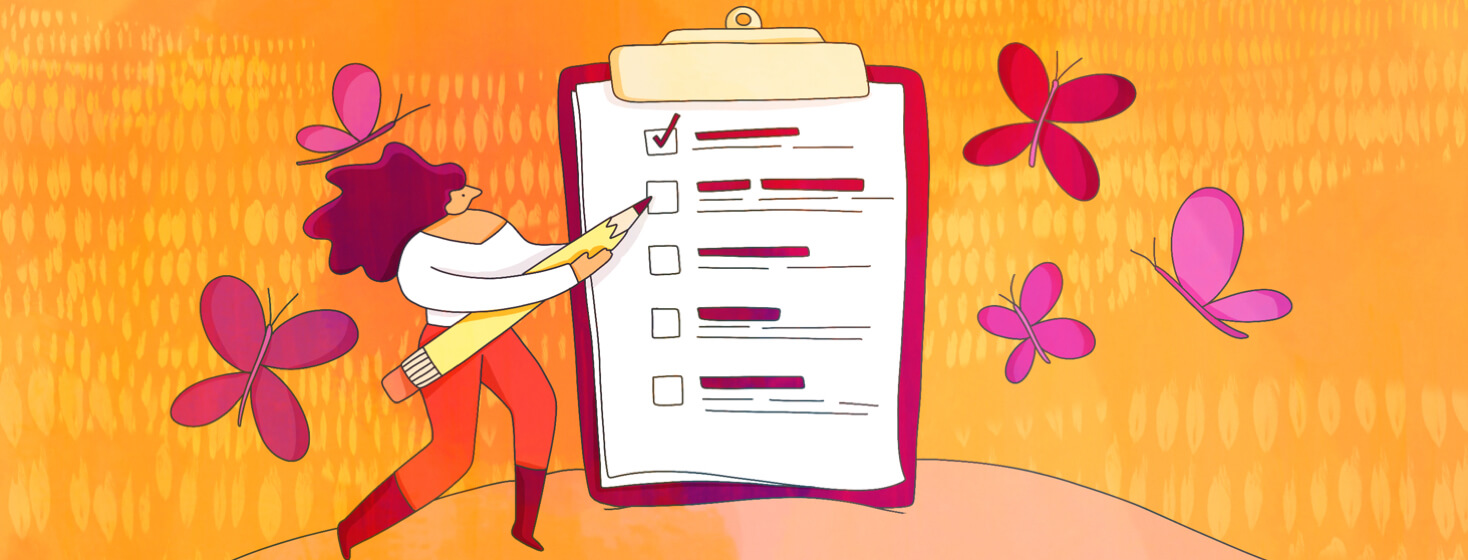Thriving During Downtime
Ever since I was young, the summers have always been the most difficult time of year for me. Before my diagnosis, I used to think I wasn’t “doing enough” during the summer and that caused my depression. My mom would try to help by waking me up in the morning with chores or errands, to no avail. Living with narcolepsy has taught me how important it is to follow my daily routine.
With so many people having to work from home this past year, I wanted to share what has helped me cope during this unstructured time. First, let me paint a picture of what my teaching-from-home or summer months typically look like.
A day of boredom
Getting up in the morning is harder than ever, even with my narcolepsy medication. My eyes open and I look at the clock, immediately contemplating if there is really a reason for getting out of bed. What will I do? I could get out of bed and find something to occupy my time, but what’s the point? After arguing with myself for a bit (or accidentally falling back asleep), I get out of bed.
With narcolepsy, it’s incredibly difficult to stay awake without being active in some way, whether it is through doing chores, taking a walk, or leaving the house. If I don’t do one of these things, I often find myself sitting on the couch and watching TV, feeling down, and wondering if going back to bed would be such a bad idea.
As time has gone on, I have learned how to help myself thrive during these long periods of free time. Even if you don’t have narcolepsy, I’m sure you could benefit from some of these points too.
1. Get moving
No matter my level of sleepiness when I wake up, I make it a goal to move my body at least once during the day. It doesn’t have to be high energy, but enough to get my blood flowing and wake up my brain. This can be as simple as cutting the grass, walking through the neighborhood, floating in the pool, or playing fetch with the dog.
2. Create a checklist
Whether putting a sticky note on the wall, jotting a list on your phone, or using a whiteboard on your fridge, following a checklist is so rewarding. Personally, I love writing on my bathroom mirror with dry-erase markers.
It is important to keep it simple. If you write down 10 points, you might feel upset if you didn’t get them all done by the end of the day. On the same token, if you write down 3 really involving tasks, you might feel overwhelmed. Doing this reminds me that I did accomplish something today. This leads me to my next point.
3. Celebrate your accomplishments
As a person with narcolepsy, some days are worse than others. My overall exhaustion makes it difficult to complete any task, and being the type of person to “pull myself up by my bootstraps,” it is easy to judge myself too harshly.
But that shouldn’t be the case for myself or anyone. Read a couple of chapters in a book, empty the trash out of your car, or pay a bill on time. That is reason enough to be proud of yourself. Celebrate getting out of bed and bettering yourself in some way.
4. Routine, routine, routine
Being a school teacher, I am accustomed to having a morning routine, school routine, afternoon routine, and bedtime routine. During the summer months, this routine more or less vanishes. Over the years, I have found that waking up and going to bed at the same time every day has drastically improved my overall wakefulness and mood. This, in turn, helps me to accomplish more in my day.
5. Social interaction
This might seem so obvious that you wonder why I included it on this list, but you’d be surprised how many days can slip by without having human interaction. Whether meeting a friend for a socially distant coffee, calling a relative, or joining a support group, setting aside time in your day to interact with other people can relieve stress and bring you joy.
What are some things you do then you have downtime? Tell us in the comments below!

Join the conversation